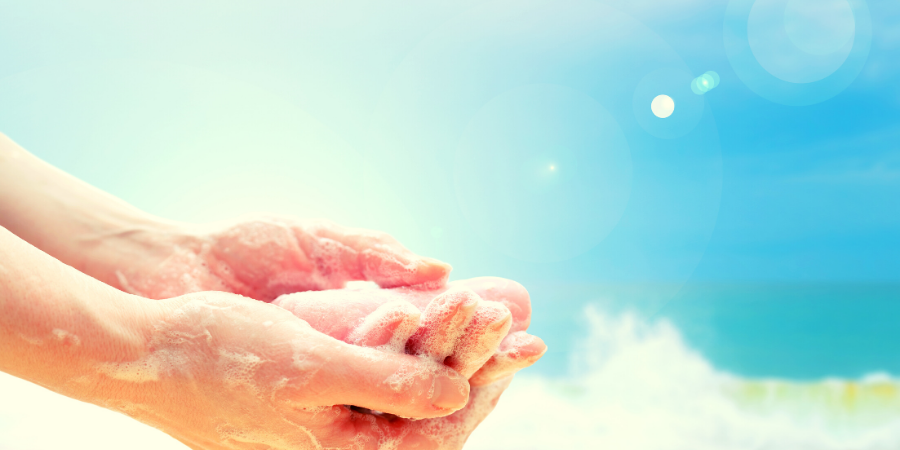FREE NATIONWIDE SHIPPING ON ORDERS $69 AND OVER
FREE NATIONWIDE SHIPPING ON ORDERS $69 AND OVER
Add description, images, menus and links to your mega menu
A column with no settings can be used as a spacer
Link to your collections, sales and even external links
Add up to five columns
Add description, images, menus and links to your mega menu
A column with no settings can be used as a spacer
Link to your collections, sales and even external links
Add up to five columns

Antibacterial vs Plain Soap
January 08, 2021 2 min read
For some time now the message that products carrying antibacterial ingredients were the way to keep ourselves and our families healthy and safe from harmful bugs.
Something that we have learned as a result of the Covid19 pandemic is that this is quite untrue.
What we have learnt
Simply washing our hands with soap it turns out is the best way of removing harmful germs from ourselves and our environment.
Of course hand sanitizers do the job as well and they are conveniently packaged so that we can clean our hands on the go. There is not always water and sink and soap available.
Antibacterial Soaps for household use generally contain an active ingredient triclosan or triclocarban at lower concentrations .1% and .45%. Community based studies have shown that triclosan and triclocarban in these low concentrations, are generally no more effective than plain soap.
( Dermnet NZ )
Which one should you use?
So no real upside to the antibacterial products, there is a downside though that requires consideration. Triclosan works in a similar way to the antibiotic isoniazid, which has raised the question of whether widespread community use of triclosan may play a role in the development of antibiotic-resistant bacteria. Several laboratory-based studies have supported this theory, while community-based studies have not demonstrated evidence of antibiotic resistance with the use of triclosan-containing soap over a one-year period.
Further research is needed in this area.
Other Concerns
Other concerns include the potential of triclosan to react with chlorine in tap water to form chloroform gas (a potential human carcinogen) and dioxins (harmful to the human endocrine system and the environment). The actual risks posed by these reactions, outside the laboratory setting, are currently unclear.
The benefits of household use of triclosan over plain soap have not been clearly proven and the data on its potential risks are conflicting. Some experts are now recommending reducing or even discontinuing the use of antibacterial household soap.
In 2017 the US Federal Drug Administration ( FDA ) prevented the use of Triclosan in hand sanitizers and antibacterial soap products.
What is clear is that chemicals such as triclosan and triclocarban which provide no extra protection against harmful bacteria have no place in our homes.
These types of unnecessary chemicals add to the cocktail that we are inadvertently exposed every day. This constant exposure adds to the body's “toxic burden”.
This toxic body burden is the EWG’s (Environmental Working Groups) chief concern about household chemicals. Our daily or weekly exposure over a lifetime of what seems like innocuous chemicals can build up enough or cause enough harm in your body that it triggers some kind of disease outcome. The concept [of body burden] is that pollution is not just in our air and in our water — it’s also in us.”
Leave a comment
Comments will be approved before showing up.
